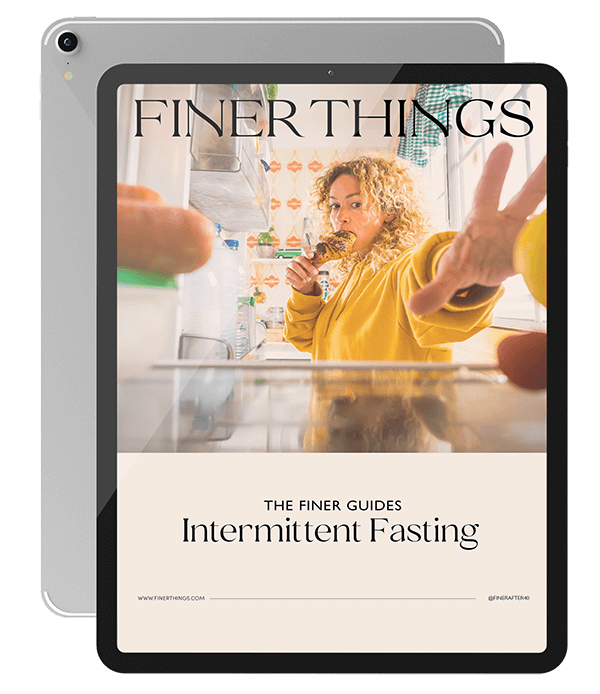On Toxic Friendships: Should We Marie Kondo Our Friends?

By Franki Hanke
How to Recognize and End Toxic Friendships
After a year of lockdown, we’ve all become hyper-aware of how we want to spend our precious time moving forward and we rush to re-connect with loved ones. In the same vein, we all know who we want to spend more time with. But, what about the people we want to spend less time with?
Toxic friendships often go on for years unrestricted. It’s hard to know how to end toxic friendships. Whether out of guilt for cutting off a “good” friend or the relative ease of keeping a friendship mostly on social media, we often keep friends around when they aren’t good for our mental health and well-being.
But, we should be spending time with loved ones who bring joy into our life, not the opposite. It’s time to think of your friends and ask yourself, a la Marie Kondo, “Does this spark joy?”
How to Recognize Toxic Friendships
It can be hard to pinpoint the bad things in a toxic relationship. To recognize an unhealthy friendship, ask yourself:
- Is this friendship changing me in a bad way?
It’s easy to identify the people who lift you up, but harder to see the other direction. Think of your self-esteem or motivation after you talk or spend time together. A good friend should leave you feeling lifted, supported, or empowered.
- Is the “rough time” or “bad mood” a constant, rather than a temporary state?
We all struggle, but if someone is in an endless “bad time,” then it’s not going to change.
- Does my friend seem to enjoy or relish my failures?
Again, it can be hard to recognize the opposite end of this spectrum. Consider the people who make you feel supported, heard, or important in your life as a comparison point.
- Is there a near-equal exchange of time, support, and attention?
Often, toxic friends intersect into our lives with one goal to use you. It might be the friend who only calls after a break-up to emotionally dump on you. But, they don’t pick up when you call after a hard day. It might be the friend who likes to crash when they are in town, but otherwise doesn’t reach out. While they aren’t always 50/50, healthy relationships have give and take.

- Do they often overstep your boundaries?
We all have boundaries. It might look like respecting your work hours, honoring your house rules, or respecting your privacy. Someone who doesn’t respect the boundaries you set forth doesn’t respect you. Being clingy often lacks respect for our time.
- Do they often rely on guilt to manipulate you?
Maybe you’ve tried to have a conversation before about the relationship. But, was guilt suddenly twisted to make it your fault? That’s a classic manipulation tactic for toxic people to avoid actually solving the issue.
Another tactic might be anger. Do you feel like you’re walking on eggshells with them?
It might be less obvious than some examples. However, the root of it is how they make you feel. Friendships, like any relationship, have highs and lows. But, overall a relationship should feel respectful, even through conflict. What if this is more than a mere friendship, but a friend-with-benefits? We’ve got more advice.
If you recognize red flags there, it may be time to scale back.
How to End Toxic Friendships
The fear is real now. Conflict avoidance is comfortable. Big conversations are not.
But, for your long-term happiness, it’s worthwhile to stomach cutting off a toxic friendship. You might feel more comfortable with a fade-out approach to slowly scale down your connection. Or, tear off the bandage completely.
Go forward with these main rules in mind.
- Be honest and clear.
- Don’t flip-flop on your boundaries.
- Focus the conversation on your feelings, not their traits.
Then, plan for the actual conversation.
Before Confronting a Toxic Friend
Set a Goal for Better Well-Being
Consider what you want to change. Find a specific goal for talking. For example, cutting down to one get-together a month for coffee. Or, your goal could be to cease communication completely.
If you want a less dramatic change, you can start now by scaling the friendship back to see if this changes your perspective. Then, from there you can further fade out time spent together.
Get The Finer Life
Our Sunday email has tips and content you will love – exclusively for our subscribers.
"*" indicates required fields
The important thing is to define the boundary you want to put into place.
If you find this process incredibly uncomfortable, consider spending more time practicing boundaries. Read Not Nice by Dr. Aziz Gazipura about finding a more authentic, assertive self.
Think About Your Talking Points – Identify the Toxicity
Think back on the friendship for what is making this toxic. You don’t need to make a court case here, but it can be empowering to say: “The lack of consideration for my privacy on social media made me feel disrespected,” rather than scrambling for words in a vague sense.
Focus on what you felt rather than character judgments.
“I felt disrespected when…” instead of “You’re a disrespectful person.”
The second statement might be true, but it’s easier to communicate completely from your side to avoid furthering an argument.
Prepare Your Social Circle – Talk to Your Healthy Relationships
If you have mutual friends, inform them privately you plan to end a toxic friendship with your target. You don’t have to elaborate on their toxic behavior if it feels private. However, including your social circle can help support your boundaries later.
You might want to lean onto your best friend or your romantic relationships more during this time too, especially if you spent a lot of time with the toxic friend. Ask them for this support ahead of time, so you don’t suddenly become an unexpected demand on their time and energy.
Talking to Your Toxic Friend
Now, when it comes time to actually talk, stick to your preparation. Be direct. Try to have the conversation as privately and personally as possible whether face to face or over video chat. Focus on being clear and direct.
You can honor the relationship’s past, if you’d like to. Especially if you’ve been friends for a long-time like since high school, you can note that positive past.
“When we met, our friendship made me feel…”
But, the focus is on communicating the change.
“Lately, our friendship has been stressing me out. The lack of respect for my privacy on social media and my working hours made me feel disrespected. I want the best for you, but it’s best for me if we aren’t friends anymore. Going forward, I’d like to go our separate ways from each other, including online.”
Depending on their reaction, you may have to re-iterate your boundaries. The important thing is to be firm. Don’t waver on your boundaries. If you have to, block them from social media completely and ignore contact until they give up.
Grieving for a Friendship
No matter what toxicity was there, it’s natural to miss a friend. When you’re spending time together less or not at all, the temptation might appear to re-connect over social media. However, you need to respect your own boundaries too.
Instead, turn to your healthy relationships for support. Consider looping in your romantic partner or even a psychotherapist so you have someone to talk to. If your social circle feels too small now, consider meeting new friends.
Find ways to support your wellness with extra self-care and social connection through other sources until this feels natural. Even if it was for the best, it’s still uncomfortable and sad to lose someone in our life.
The above content may contain affiliate links. Finer Things earns from qualifying purchases. When you click and shop, we receive a small commission to support our writers.

Want a Free Guide?
You will receive our free 19-page guide and access to our exclusive content, private invitations, and tips you’ll love.
"*" indicates required fields
Facebook Group